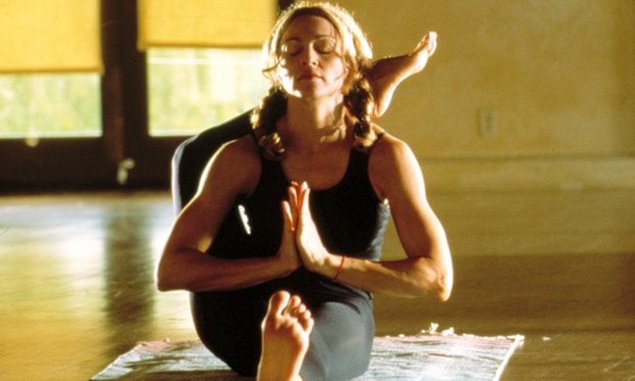PSYCHOLOGY
STOP TRYING
TO FIND YOURSELFThere is no such thing as the "essential" self because we change all the time. |
We’ve all heard the importance of looking within, finding yourself, and being authentic to what you see. What could possibly be wrong with that?
Actually, Chinese philosophers 2,000 years ago would say our emphasis on self-discovery has led us dangerously astray and constrains us. Consider the self the way that they did: there is no true self and no self you can discover in the abstract by looking within. Such a self would be little more than a snapshot of you at that particular moment in time. We are messy, multifaceted selves who go through life bumping up against other messy, multifaceted selves. Who we are at any given moment develops through our constantly shifting interactions with other people. Strike a pose: Madonna as a yoga teacher in The Next Best Thing (2000). Photograph: Rex Shutterstock
Philosophers, such as Confucius, advocated living “as if”. They said that by engaging in as-if rituals – which are the very opposite of the sincere, authentic approach to ourselves – we will develop into better human beings. How does this work? Consider a game of hide-and-seek with a child. When you play at being a befuddled adult who can’t hide very well, both you and the child know you are just pretending. But by taking on these roles you have both broken from your usual patterns. The triumphant child experiences competence over an adult; the adult is the fallible, vulnerable person bested by a child. We break from who we are when we note the not-so-good patterns we’ve fallen into and then actively work to shift them – “as if” we were different people in that moment. Such opportunities exist all around us. When we greet someone cheerfully even though we’re feeling down at the moment; when we calmly respond to an infuriating person even though our “real” feeling is anger. In all such instances, we enter an alternate reality in which we draw on different sides of ourselves and each time we do so we come back slightly changed. Being untrue to ourselves helps us break bad patterns. Confucius (who presumably saw the dangers of too much self-absorption and would have almost assuredly been horrified by the Myers-Briggs test) taught that we must “overcome the self”. His rituals liberated people from the notion of any sort of essential self. But if there’s no essential self and you are always changing, you might wonder how you could ever decide what’s best for you. Here again, the notion of living life by breaking from who you think you are can help. Consider the example of a student we know: throughout secondary school he’d excelled in maths and science, so when he went to university he expected to continue along that path, and planned on studying economics. He had an interest in Chinese, but quit after a term because learning a foreign language didn’t seem to be a strength of his. After encountering Chinese philosophy, he realised that he didn’t need to limit himself to his strengths and proclivities, nor did he have to stick to a plan he’d previously made, so he returned to Chinese, did a postgraduate degree in Asian studies, and now works as a diplomat. By breaking from his vision of himself he found an expansive and unexpected life. It is liberating to understand the self and the world to be unstable, imperfect and fragmented. This gives us all the more opportunity to shift things on micro levels constantly. We alter things at a small, daily level, and if we’re successful we eventually build tremendous communities around us in which we, and other people, can flourish. ________ The Path: a New Way to Think About Everything is by Michael Puett and Christine Gross-Loh (£14.99, Viking). To order a copy for £11.99 go to bookshop.theguardian.com |
Vertical Divider
|
5things
WEEKLY BULLETINA weekly bulletin of the 5 most recommended articles, challenging ideas and interesting new things in Psychology from
NIKOS MARINOS CONSULTANCY delivered straight to your inbox, every Monday. |


